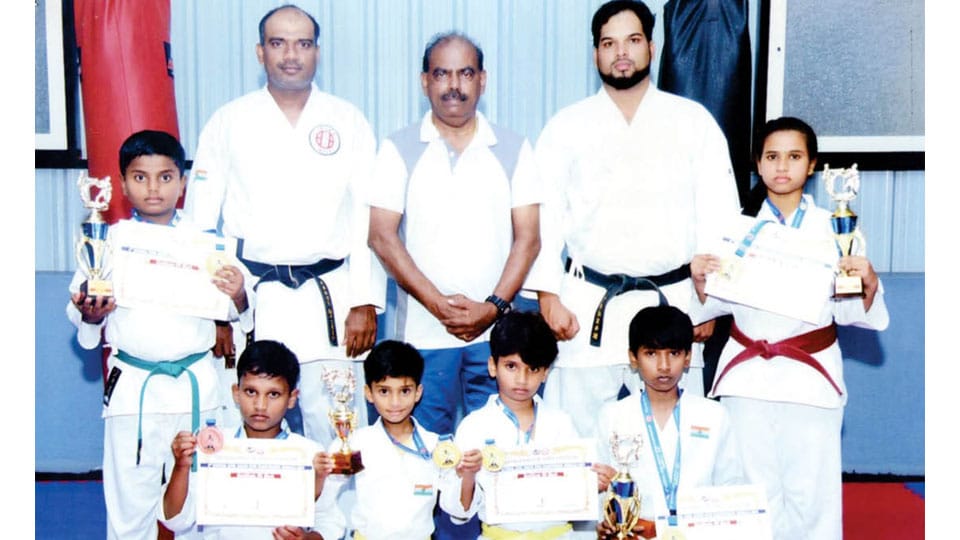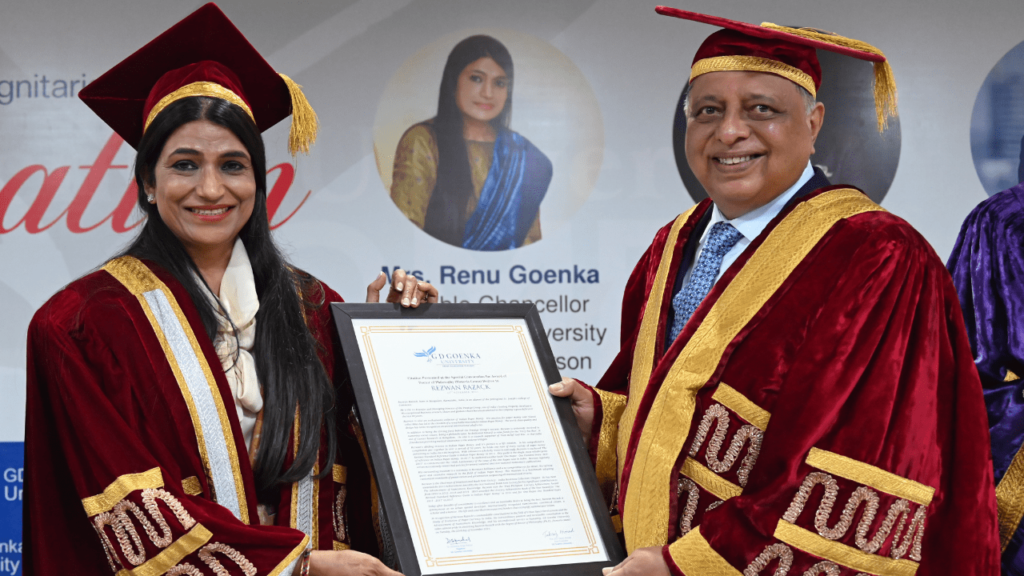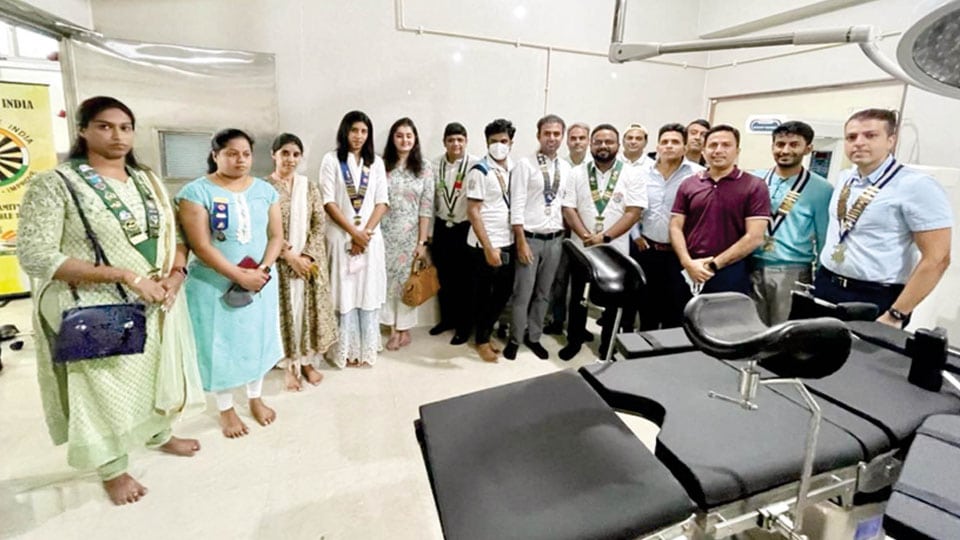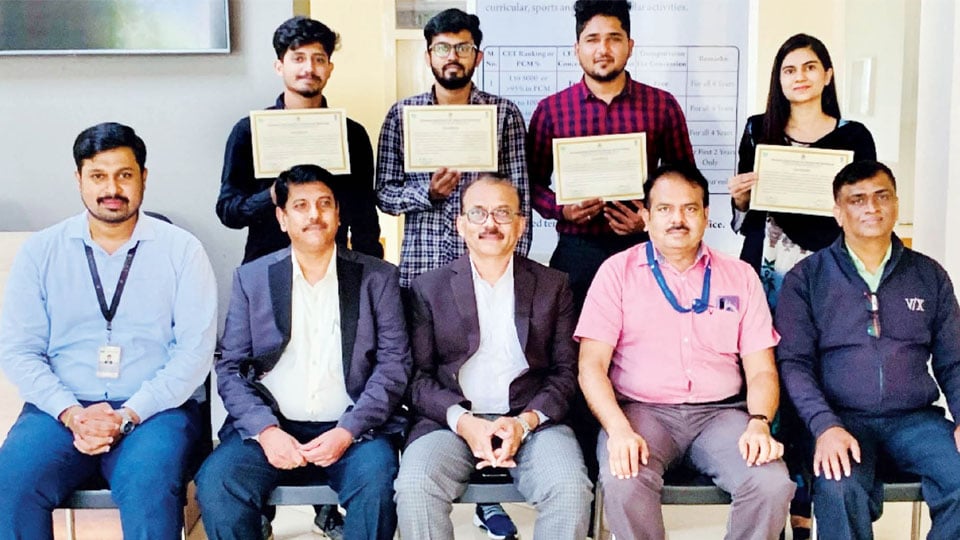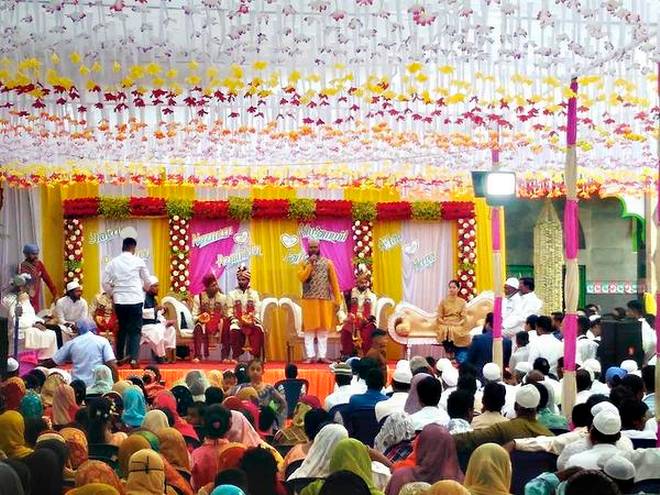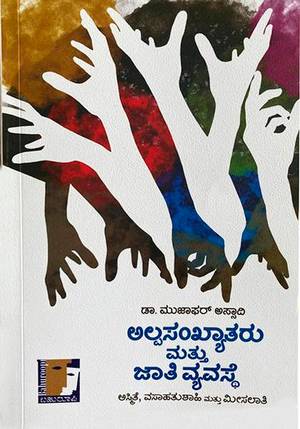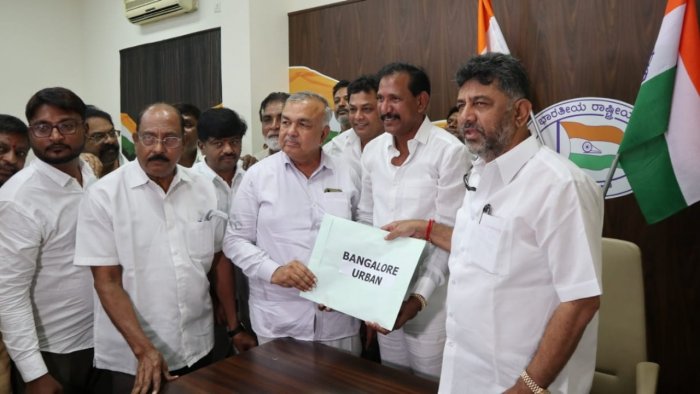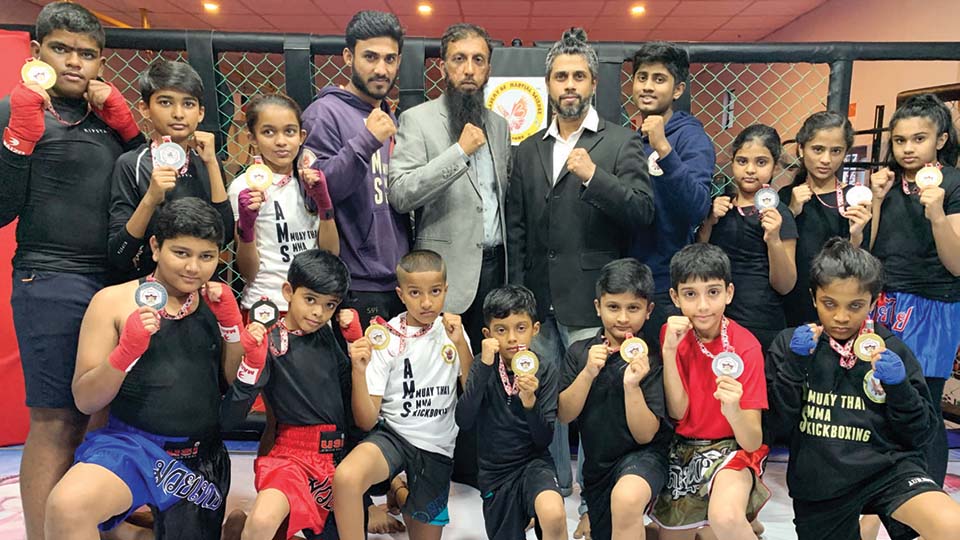Mysuru, KARNATAKA :

Rare RD 350 HT added to cricket legend’s large collection.
Mysore/Mysuru:
Former Indian cricket captain M.S. Dhoni has a large collection of cars and bikes at his Ranchi home. The latest addition is a Yamaha RD 350 HT bike built by restoration expert from Mysuru Syed Jadeer Husnain. The mean machine was delivered to Dhoni last month.
This competition green-coloured bike may be the 34th or 35th RD 350 bike Dhoni has, Syed said. The all-new paint looks fantastic with white contrast that gives it a rich tone.
A resident of Manti at Belavatha in Mysuru, Syed restores RD 350 bikes. In fact, he restored one gold-coloured RD 350 for himself and he took both the bikes to Ranchi to show his craftsmanship. “Now, the gold RD 350 carries Dhoni’s autograph on the fuel tank which makes it a priceless bike in my own collection,” Syed told SOM.
“I am a fan of Yamaha RD-350 and I try to make the best of that bike to find true pleasure. By profession I am a building construction contractor but I love to live my dream,” Syed said.
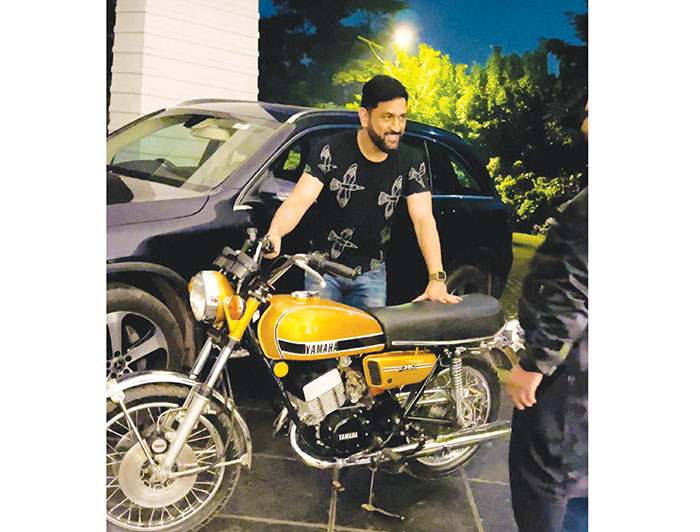
Chance to meet Dhoni
On how he met Dhoni, Syed said that a close friend of his, who was in touch with Dhoni’s friend, shared the contact. “I had a restored RD 350 HT bike then which was the 19th bike that was rolled out in India and one of the best projects we had completed. My friend told me to contact Dhoni and get the bike included in his collection since it was a collector’s item. But it did not materialise,” he revealed.
After upgrading the next bike to the 1973 model as per US specification with minute detailing such as colour, seat shape and installation of disc brakes, Syed sent the photos of the competition green bike to Dhoni’s friend, who in turn showed it to Dhoni.
“Dhoni liked the photos and wished to see the vehicle in his farm house at Ranchi. This particular RD 350 was my own project bike which was built to US specification which is entirely different from the Indian Rajdoot specifications. After the project was successfully completed, we discussed it with Dhoni’s friend and the meeting with the legend happened,” Syed explained.
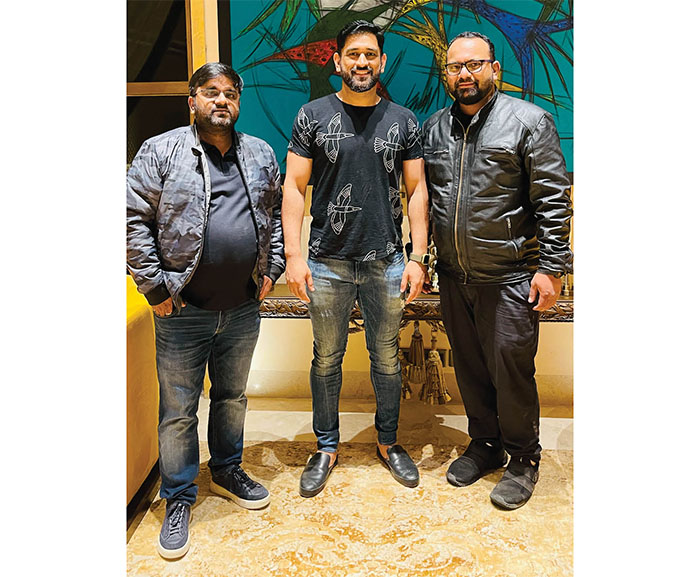
Painstaking process
On the restoration process, Syed said that he and his team first checked the bike for broken, damaged and worn out parts before replacing them. “The spare parts are restored before disassembling the bike so that it can be easily painted and fixed without any problems. Then the bike was disassembled and was divided to different teams for mechanical works, engine overhauling, painting and chrome-plating. New parts were sourced from different parts of India,” he explained.
“Everything was done to make the bike a perfect beast and was assembled. This bike was restored in six months but the process of collecting spares started six months ago,” Syed said.
Syed has different teams to work on his projects. “I try to make the best bike and people who work with me on my projects are all specialists. We specialise in two-stroke engines like Yamaha RX series, Suzuki Shogun and Shaolin,” Syed said.
After the message that Dhoni wanted to see the bike, Syed and his team had the challenge of covering the bikes with packing materials to prevent scratches while being transported in a train. He, along with his wife’s younger brother and a mechanic, boarded a train to Ranchi in November.
A dream come true
“Dhoni is a fantastic gentleman who spared his time to look at our creations. I got goose bumps when he came in front of me. When we started discussing, I fumbled for words and I admired his passion and interest. He showed me his huge collection. For me it was like a dream come true to meet him in person,” Syed said.
Later, Dhoni took the bikes for a spin. “His eyebrows rose after the rides said it all,” revealed Syed. Dhoni later autographed the gold-coloured RD 350 tank. The cricketer also signed a few posters and posed with Syed for photos.
Yamaha RD 350 was one of the most powerful two-wheelers in the late 1980s and also India’s first performance-oriented bike. It had a 347 cc two-stroke twin cylinder engine that was de-tuned for the Indian markets to produce lesser power of about 30.5 bhp on the High Torque (HT) version and 27 bhp on the Low Torque (LT) version.
‘Race Derived’
The RD 350 from Japan was introduced in the Indian markets under the name Yamaha Rajdoot RD 350 by the Escorts Group from 1983 to 1989. Despite the common notion, RD stands for ‘Race Derived’ and not Rajdoot. It was given the name ‘Rapid Death’ because of the frequent fatal accidents because of its power.
The RD could go 0-100 in about 7 seconds and reached a top speed of around 160 kmph in the top gear. It had a price tag of Rs. 18,000 when it was launched in 1983 and Rs. 30,000 by the time it discontinued, which was expensive then. A well maintained RD 350 bike will now cost between Rs. 2 lakh to Rs. 2.5 lakh, if at all it is available.
source: http://www.starofmysore.com / Star of Mysore / Home> News> Top Stories / December 12th, 2021
